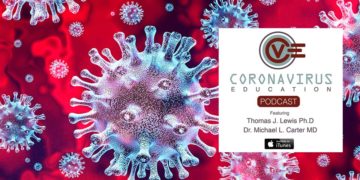Being immunocompromisedimmunocompromised im·mu·no·com·pro·mised | \ ˌi-myə-nō-ˈkäm-prə-ˌmīzd : having the immune system impaired or weakened (as by drugs or illness). impacts individuals fighting any kind of infectioninfection in·fec·tion | \ in-ˈfek-shən a : the state produced by the establishment of one or more pathogenic agents (such as a bacteria, protozoans, or viruses) in or on the body of a suitable host b : a disease resulting from infection or virusvirus vi·rus | \ ˈvī-rəs : a disease-causing agent that is too tiny to be seen by the ordinary microscope, that may be a living organism or may be a very special kind of protein molecule, and that can only multiply when inside the cell of an organism , including coronaviruscoronavirus co·ro·na·vi·rus : any of a family (Coronaviridae) of single-stranded RNA viruses that have a lipid envelope studded with club-shaped projections, infect birds and many mammals including humans, and include the causative agents of MERS, SARS, and COVID-19. The state of being immunocompromised is generally having a weakened immune systemimmune system : the bodily system that protects the body from foreign substances, cells, and tissues by producing the immune response and that includes especially the thymus, spleen, lymph nodes, special deposits of lymphoid tissue (as in the gastrointestinal tract and bone marrow), macrophages, lymphocytes including the B cells and T cells, and antibodies. that reduces the ability to fight off disease or infection. These individuals are of most concern in terms of the global coronavirus pandemicpandemic (pan·dem·ic) : an outbreak of a disease that occurs over a wide geographic area and affects an exceptionally high proportion of the population : a pandemic outbreak of a disease. and higher morbidity from COVID-19COVID-19 \ ˈkō-vid-nīn-ˈtēn : a mild to severe respiratory illness that is caused by a coronavirus (Severe acute respiratory syndrome coronavirus 2 of the genus Betacoronavirus), is transmitted chiefly by contact with infectious material (such as respiratory droplets), and is characterized especially by fever, cough, and shortness of breath and may progress to pneumonia and respiratory failure. .
Having a diagnosed condition such as hypertensionhypertension hy·per·ten·sion | \ ˌhī-pər-ˈten(t)-shən 1 : abnormally high blood pressure and especially arterial blood pressure 2 : the systemic condition accompanying high blood pressure or Diabetes is generally a good indicator of a higher immune-compromised status. However, ill-defined conditions—those that are not well defined but generally affect your overall feelings of wellness—lead as the most common diagnosis in chronic conditions, according to the Kaiser Family Foundation.
Dr. Thomas Lewis, medical scientist from Health Revival Partners and co-founder of Good Medicine Choice Network, says maintaining strong immunohealth is important to fighting and avoiding any illness. Dr. Lewis has dedicated his life’s work to determining how to better predict Alzheimer’s and chronic diseases in general.
Watch the Podcast “Coronavirus: Are You immunocompromised and how can you maintain strong immunohealth?”
Dr. Lewis provides assessments of chronic state of health and health risks. The assessment tests for 20 risk biomarkers as a baseline to measure interventions to reduce inflammation, improve chronic disease risk and affect an improvement in immunohealth status.
Take your immunocompromised status assessment.
“You need a strong immune system to fight the SARS-CoV-2SARS-CoV-2 ˈsärz-kō-ˈvē-ˈtü : the coronavirus (Severe acute respiratory syndrome coronavirus 2 of the genus Betacoronavirus) that is the causative agent of COVID-19 virus,” he said. “Many common prescription medications ‘manage’ disease symptoms, but most drugs used to manage symptoms of chronic conditions do so by suppressing your immune response.”
Aangiotensin-converting enzyme inhibitors, or ACEIs, used to treat hypertension and other coronary conditions have been reported to modify the adaptive immune response, suggesting that long-term use of ACEIs might suppress the adaptive immune response, which is a key defense against viral infections.
“If you are able to alleviate the factors that play into poor health and chronic health conditions, you not only feel better and require less in terms of health care expense but you are less vulnerable to severe disease like COVID-19,” Dr. Lewis added.
Evidence Linking ACE Inhibitors to Severe COVID-19 Symptoms
The incidence of hypertension is noticeably high in patients with COVID-19. Researchers at Louisiana State University Health and New Orleans School of Public Health proposed ACE inhibitors may be a primary driver of severe symptoms seen in some people diagnosed with Covid-19. The LSU-New Orleans findings were based on a study of 1,099 patients in China from December-January 2020 and was published in the Journal of Travel Medicine. Of the infected patients, 173 had severe disease, in whom the most common comorbidities were hypertension (24%), diabetes (16%), coronary heart diseaseheart disease : an abnormal condition of the heart or of the heart and circulation (such as coronary heart disease, arrhythmia, or heart-valve defect) (6%), and cerebrovascular disease (2%). The concerns about the connection between COVID-19 severity and medications commonly used to treat hypertension, diabetes, and cardiovascular disease also have been raised in The Lancent.
Much like in the SARSSARS särz : a severe respiratory illness that is caused by a coronavirus (species Severe acute respiratory syndrome-related virus of the genus Betacoronavirus), is transmitted especially by contact with infectious material (such as respiratory droplets or body fluids), and is characterized by fever, headache, body aches, a dry cough, hypoxia, and usually pneumonia — called also severe acute respiratory syndrome (Severe Acute Respiratory SyndromeSARS (severe acute respiratory syndrome) ˈsärz : a severe respiratory illness that is caused by a coronavirus (species Severe acute respiratory syndrome-related virus of the genus Betacoronavirus), is transmitted especially by contact with infectious material (such as respiratory droplets or body fluids), and is characterized by fever, headache, body aches, a dry cough, hypoxia, and usually pneumonia — called also severe acute respiratory syndrome ) outbreakoutbreak out·break | \ ˈau̇t-ˌbrāk : a sudden, rapid rise in the incidence of a disease in 2003, the new SARS-CoV-2, drugs commonly used to manage cardiovascular disease, including ACEIs and angiotensin receptor blockers (ARBs) can increase the virus’s ability to bind to receptors in the lower respiratory tracts of patients. Those receptors, angiotensin-converting enzyme 2 or ACE2, allow coronavirus to attach to and infect cells. A protease, TMPRSS2, is also required to prime the virus for cellular entry.
Already, there is current research on an ACE2 Receptor Blocker at Clinicaltrials.gov and a blocker of TMPRSS2 has been approved for human use in Japan.



No comments yet. Be the first one to leave a thought.